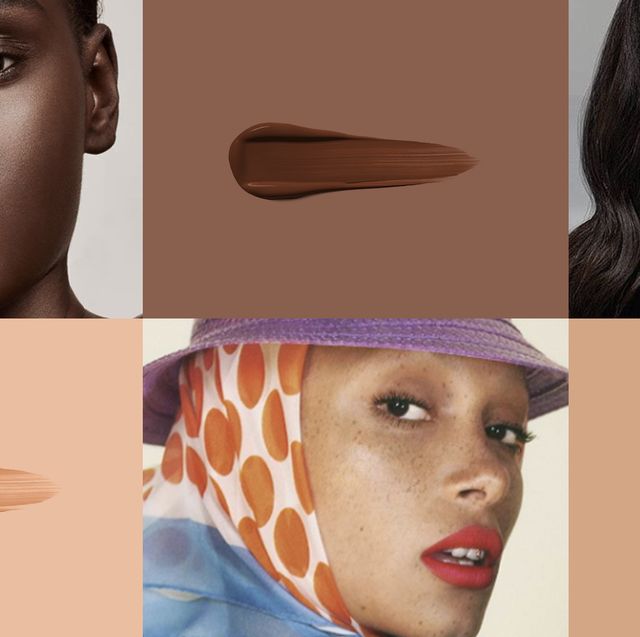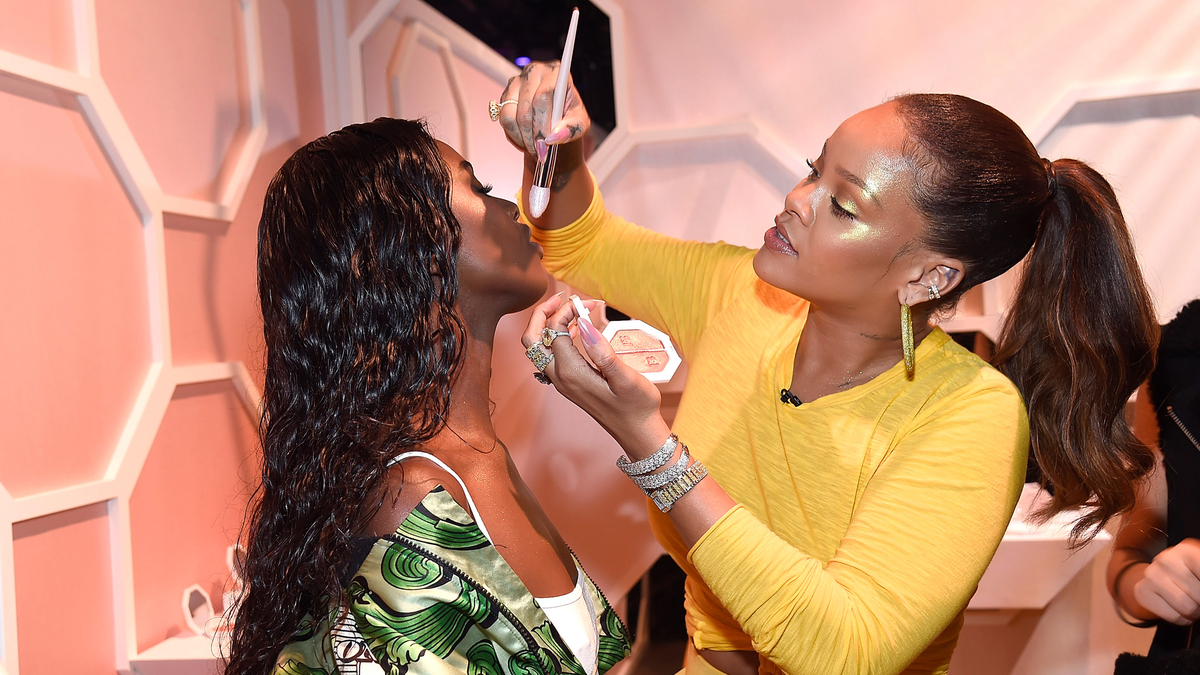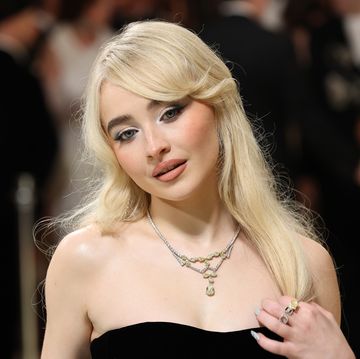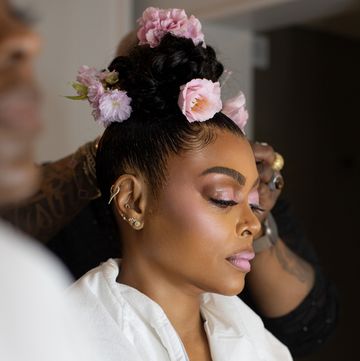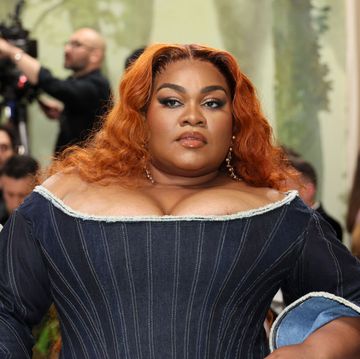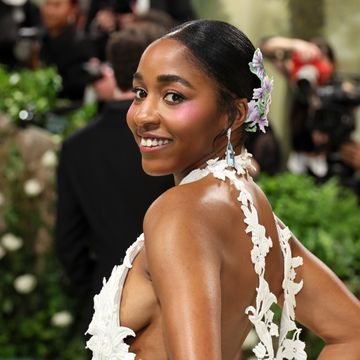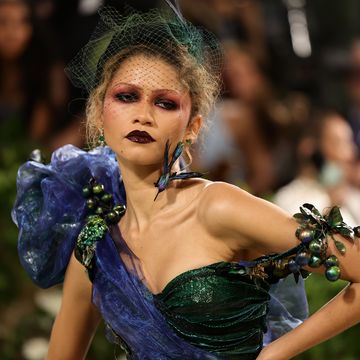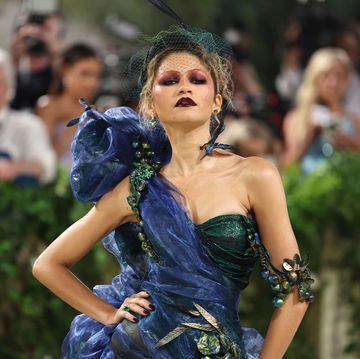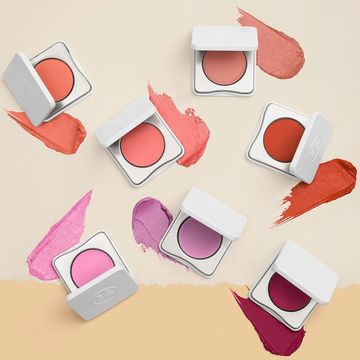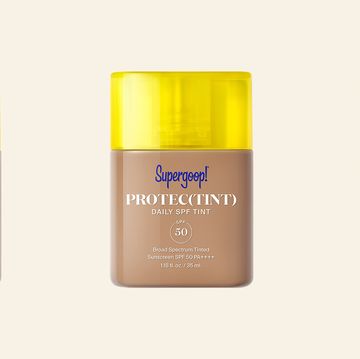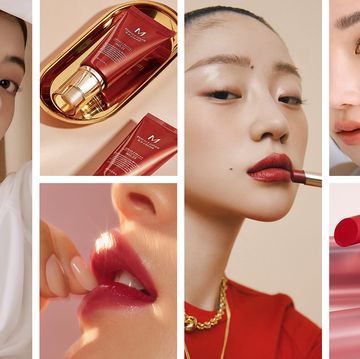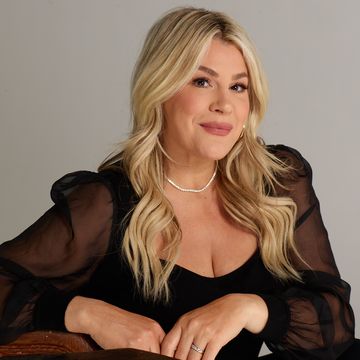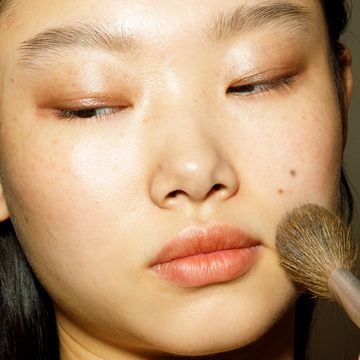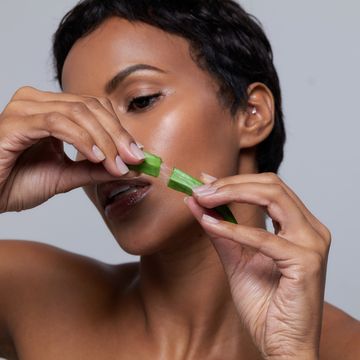Nyajal Dup is broadcasting from her bedroom in front of a rack of clothes. She’s dressed in a yellow ringer tee with a striped blue collar waving around the new Fenty Beauty foundation stick—Dup is happy, her smile would bathe Madison Square Garden in light. The setting is unusual for Dup, the dark-skinned woman behind popular Youtube account MelaninRich Nyajal, who usually records videos in front of a sleek gray screen. But Dup wants to get the video reviewing the new Fenty Beauty collection out quickly, because she’s excited. “Shoutout to Rihanna for getting a shade for us,” she says doing a small dance with the stick, “we finally have something that goes with us, too.”
“I remember a time when I wouldn't bother scanning the makeup aisles because I knew for a fact I wasn't going to find my shade,” Dup tells me. The beauty expert has been reviewing products for people of color for years, but her review of Fenty Beauty’s darkest foundation shade 490 really resonated with her audience. In her video, Dup notes it’s a big deal that a high-end brand like Fenty went out of its way to make dark shades. And she wasn't the only one who loved it. The darker shades sold—all the way out. It was but one of the many indicators that in 2017 the beauty industry is finally becoming more inclusive.
Covergirl also welcomed a diverse range of new spokesmodels. Women of color like Ayesha Curry, Issa Rae, nutritionist and grandmother Maye Musk, and motorcycle road racer Shelina Moreda were all announced as new faces of Covergirl. For Covergirl, this is the new normal. “Diversity is not a trend at Covergirl” says Ukonwa Ojo, Covergirl’s senior vice president. “Embracing diversity means truly embracing the diversity in our individuality. The insight behind our campaign is that that people consider makeup more than a cosmetic, but a tool for creativity, self-expression, and personal transformation.”
Covergirl was not the only brand to add a new roster of spokesmodels that break from the norm. Estee Lauder added Chinese supermodel Fei Fei Sun to its fold, L’oreal welcomed Aja Naomi King, and Model of the Year Adwoa Aboah was named the face of Marc Jacobs.
So why the premium on diversity in 2017? Could it be a response to the current political climate? Are people craving diversity and representation when it’s so constantly being belittled and dismissed? That's part of it, but there’s also the factor that’s forced corporations to grind forward for decades: It’s just good business sense.
“There are so many cultural, societal, and demographic shifts [that] are influencing beauty at the moment,” says Ojo. “The makeup of the global population is changing, with groups that were once considered minorities predicted to become the majority in only a matter of years.” Covergirl is anticipating a worldwide change in demographics. If the brand wants to remain relevant 10, 15 years down the line, it has to change with the world. By becoming the go-to brand for women of color now, it can corner a market that’s only going to grow exponentially.
Of course, it’s not all about the dollars and cents and setting the foundation for the future health of a business. “There's also a renewed sense of urgency around empowerment, and female empowerment in particular,” says Ojo. “It has become increasingly important in our culture to stand up for what you believe and make your voice heard. For our industry, all of this means there is no longer a singular standard of beauty, and that people want to see representation of people like them in beauty.”
One of those people who maybe didn’t see herself represented before is beauty vlogger Arshia Moorjani. Unsurprisingly, Moorjani, like Dup, says Fenty Beauty is a lighthouse. It’s a brand that not only includes almost exclusively people of color in its campaigns and creates products for every skin color, but is also helmed by a woman of color. “As an Indian-American woman, I finally felt connected to a brand (even without trying any of the products),” Moorjani tells me over email. “Growing up, I never saw girls who looked like me in magazines, commercials or in any sort of beauty campaign.”
It’s a concept that King hinted at when she was named L’Oreal’s new spokesmodel. “You cannot be what you cannot see,” King said, quoting Shonda Rhimes. Moorjani and King represent two sides of the same coin: Moorjani is searching for campaigns with women of color and King is fully aware of the impact a campaign like hers can have. “When you look at a global brand like L'Oreal,” King says, “to be a part of that vision and to be put out there in the world for other young women to see me and see a reflection of themselves promoted in that way—it's so powerful because it really sends the message of look at all the wonderful things we can do.”
2017 was a banner year for inclusivity in the beauty world. But the steps we’ve taken are, at the same time, evidence of how far we still have to go. Fenty Beauty clearly made an impact on the women of color I spoke with, and even though Rihanna didn’t make the products in limited numbers they still sold out—doesn’t it make you wonder why there can’t be more brands stepping up to do the same?
